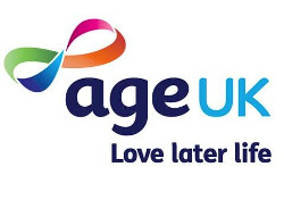The Fundraising Standards Board has found that Clothes Aid was in breach of the Code of Fundraising Practice, but has exonerated the NSPCC in its latest adjudication report.
In its report published today, the FRSB found that Clothes Aid had breached the “respectful” principle of the Code of Fundraising Practice, after a complainant said they had received “a number of unwanted clothing collection bags in recent years”.
Clothes Aid describes itself as a “social business” and works alongside charities to collect unwanted clothes from the public which are then sold on to stock European department stores second-hand. It was working at the time with a number of charities, including the NSPCC.
The FRSB concluded that such incidents impacted on the complainant’s “right to privacy, constituted harassment and demonstrated a lack of respect for their wishes to not receive unwanted marketing materials”.
According to the report, the complainant had first contacted Clothes Aid in September 2007 to request that no further bag deliveries be made to their address. According to the report, Clothes Aid had immediately taken action in an attempt to respond to their wishes.
However the complainant informed the FRSB that they had subsequently received “a further five instances of collection bags being delivered to the complainant’s address by Clothes Aid, four of which had been delivered on behalf of the NSPCC”.
On 5 November 2015, the complainant contacted the NSPCC directly and objected to the fact that they had received an unwanted collection bag from Clothes Aid. The complainant subsequently contacted the FRSB and said they had “a sign on their door at the time which made it clear that they did not wish to receive such materials”.
Clothes Aid maintained that “its distributor did not see such a sign displayed on the door of the complainant’s property when the bag was dropped off” nor when the “property was visited shortly after the complaint was made”.
According to the report’s findings, Clothes Aid has since overhauled its training programme; reinforced the company’s complaints procedure; temporarily suspended delivering bags to all households displaying 'no junk mail' signage, and removed the complainant’s entire street from all future distribution lists.
The FRSB did not uphold the complaint made against the NSPCC in relation to this adjudication.
The FRSB concluded that, due to the “low complaint rate” that the partnership had generated and the fact that the NSPCC had a designated “account manager” working closely with Clothes Aid, it had complied with the Code.
The FRSB did note however that it was “concerned that the NSPCC’s complaint-related monitoring procedures did not identify that this particular complainant had made four complaints” previously about the same issue.
As part of its wider recommendations, the FRSB has highlighted the fact that the Code does not currently include a clause dealing with the subject of delivering bags to households displaying ‘No bags’ signs. It has recommended that the new Fundraising Regulator look at this.
Commenting on the ruling, Michael Lomotey, business manager at Clothes Aid, said: “It is with huge regret we have received this complaint, but I believe that the mitigating processes we have now put in place will protect and prevent any other future incident happening of this nature.
“We have fully taken on board all of the findings and recommendations of the FRSB and through regular reporting and tighter account management with our charities, I feel confident that this will contribute towards stopping any similar future complaints being made.”
Related articles












